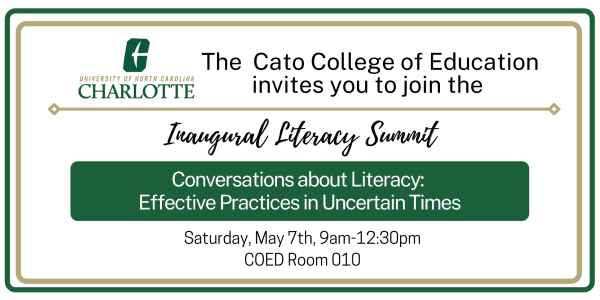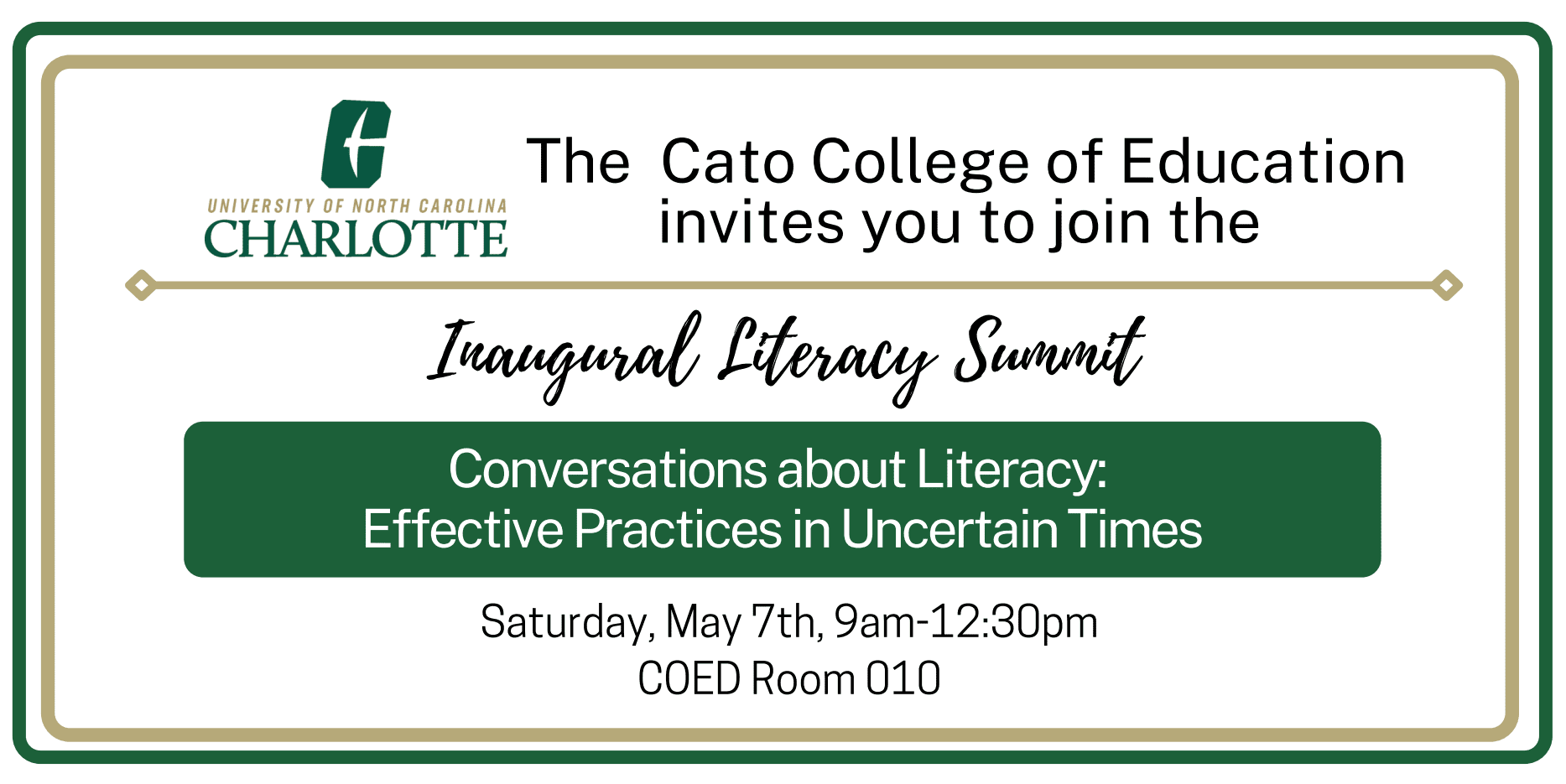M.Ed. in Reading Education Course Sequence
The master’s program is a two-year program for most students taking two courses per Fall and Spring term and three courses taking in two summer terms. The current course of study for students depends on what semester they start. See our Fall-Summer start sequence document for the classes students typically take depending on when they begin the program. We strongly encourage students starting the program to begin their first summer, taking one or two courses. This lightens the courseload during the second Summer from 9 hours to 6 or 3 hours.
The courses for the master’s with the semesters they are offered typically include:
Summer
- READ 6204 Teaching Reading to ELL
- READ 6300 Global Literacy in a Multicultural World: Genre Studies
- RSCH 6101 Educational Research Methods
Fall
- READ 6100 Trends and Issues in Literacy and Leadership
- READ 6250 Emergent and Elementary Literacy
Spring
- READ 6252 K-12 Writing Development and Instruction
- EDUC 6254 Individualizing Instruction for Diverse Learners
Fall
- ELED 6303 Teacher Inquiry and Data Analysis in the Elementary Classroom
- READ 6255 Middle/Secondary Reading and Writing
Spring (final term)
- READ 6260 Diagnostic Assessment and Instruction in Reading
- READ 6254 Collaborative Leadership in Literacy Education
We develop an Early Entry plan that is individualized for each of our undergraduates who begin the Masters program while an undergraduate. Early entry students do not follow the cohort sequence.
Advanced Literacy Instruction & Intervention Certificate Course Sequence
Students in the certificate program take four courses (12 credit hours). TWO courses are required and currently are offered in the Spring semester with the remaining TWO courses taken in the Summer or Fall terms. Students typically take two courses in the Fall and two in the Spring or two in the Spring and two in the Summer which allows students to complete the program in two semesters.
The TWO required courses that are offered in the Spring semester are:
- READ 6252 K-12 Writing Development and Instruction
- READ 6260 Diagnostic Assessment and Instruction in Reading
Students then select TWO classes from among the following options:
-
READ – 6100 – Trends and Issues in Literacy and Leadership (Fall)
-
READ – 6250 – Emergent and Elementary Literacy (Fall)
-
READ – 6255 – Middle/Secondary Reading and Writing (Fall)
-
READ – 6300 – Global Literacy in a Multicultural World: Genre Studies (Summer)
- READ – 6204 – Teaching Reading to English Language Learners (Summer)
Students can register to start the ALII Certificate program in the Fall semester or to start in the Spring semester. Students are not permitted to start in the summer. Summer courses are offered but not as a starting point for the certificate. All coursework in the Advanced Literacy Instruction & Intervention Certificate can apply towards the M.Ed. in Reading Education at UNC Charlotte for students who wish to go beyond the certificate and earn their master’s degree.
Students may start the ALII Certificate in the Spring or Fall. The program requires two semesters for most students to complete.
Link to our Current Course Sequence for Master’s and Certificate Programs
Here is a link to the current course sequence for our M.Ed. in Reading Education and ALII Certificate programs.

